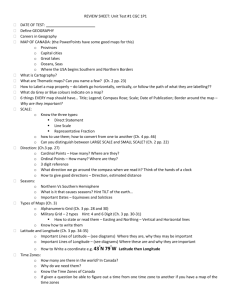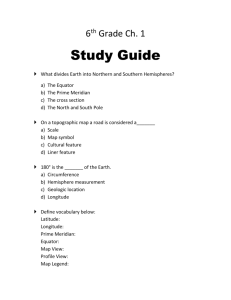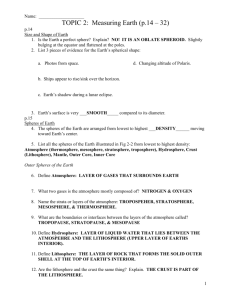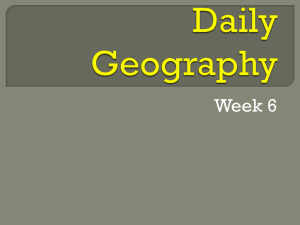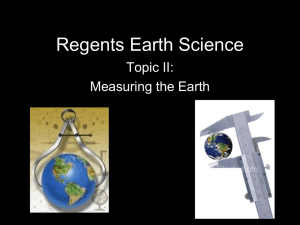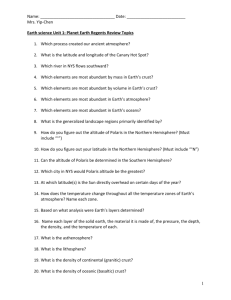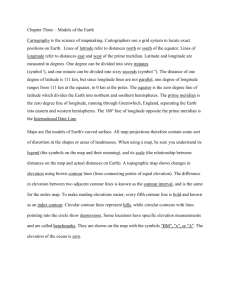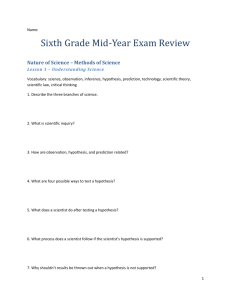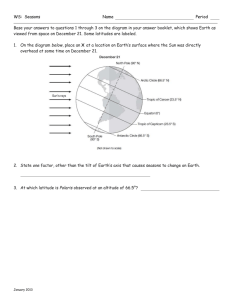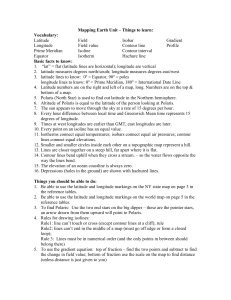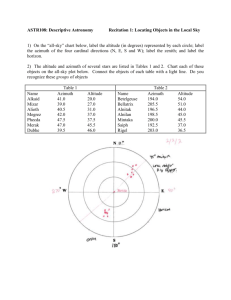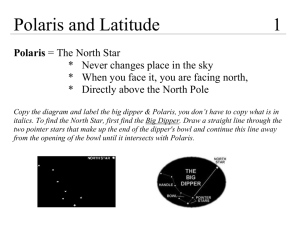Topic 2
advertisement
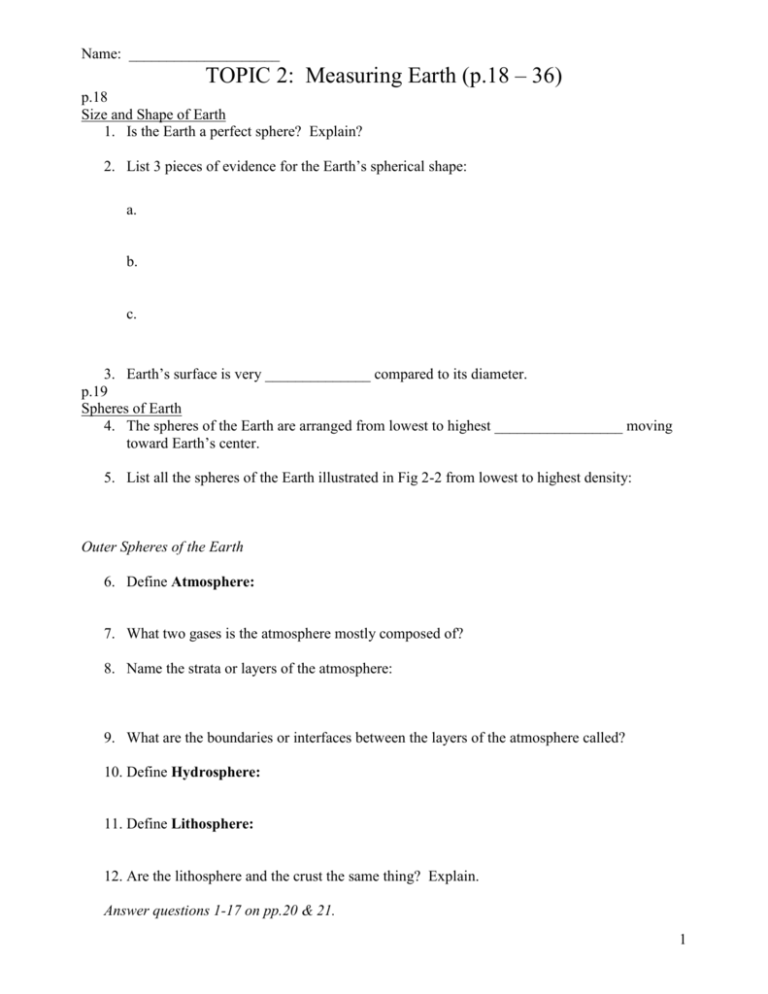
Name: ____________________ TOPIC 2: Measuring Earth (p.18 – 36) p.18 Size and Shape of Earth 1. Is the Earth a perfect sphere? Explain? 2. List 3 pieces of evidence for the Earth’s spherical shape: a. b. c. 3. Earth’s surface is very ______________ compared to its diameter. p.19 Spheres of Earth 4. The spheres of the Earth are arranged from lowest to highest _________________ moving toward Earth’s center. 5. List all the spheres of the Earth illustrated in Fig 2-2 from lowest to highest density: Outer Spheres of the Earth 6. Define Atmosphere: 7. What two gases is the atmosphere mostly composed of? 8. Name the strata or layers of the atmosphere: 9. What are the boundaries or interfaces between the layers of the atmosphere called? 10. Define Hydrosphere: 11. Define Lithosphere: 12. Are the lithosphere and the crust the same thing? Explain. Answer questions 1-17 on pp.20 & 21. 1 Name: ____________________ TOPIC 2: Measuring Earth (p.18 – 36) p.22 Locating Positions on Earth 13. The _____________________________ coordinate system is the one most commonly used to locate points on Earth’s surface. 14. What are the angular units that latitude and longitude are measured in? ________________ Latitude 15. Define Latitude: 16. All points that have the same latitude lie on a circle that is ___________________ to the equator. p.19 Measuring Latitude 17. The altitude of Polaris (the North Star) is equal to _________________________________. 18. Define Altitude (as intended in question 17 above): 19. What is the altitude of Polaris at the equator? ___________________ 20. What is the altitude of Polaris at the North Pole? ________________ 21. Use figure 2-3 to find out what the altitude of Polaris is at Toronto Canada. _____________ STUDY THE 2-5 A & B 22. Where are the pointer stars and what can they help you find in the sky? Longitude 23. Define Longitude: 24. Complete the analogy The equator is to latitude, as the ____________________ is to longitude. 25. The 180 degree meridian is the continuation of the ______________ __________________ on the other side of the Earth. This meridian somewhat follows the ___________________ ____________ ______________ . p.24 Measuring Longitude 26. The moment the sun reaches its highest altitude in the sky is called ___________ _______. 2 Name: ____________________ TOPIC 2: Measuring Earth (p.18 – 36) MEMORIZE # 27 ↓ 27. The Earth rotates from ___________ to _____________ at the rate of one rotation per day – 360º in 24 hours – it rotates ______________ . 28. What is GMT? 29. In general, longitude can be calculated by finding the time difference in hours between __________________________________ and _______________________________ and multiplying by 15º. 30. Complete the “Digging Deeper” after the Using Latitude and Longitude reading section. Answer questions 18 – 30 on pp.24 &25. p.26 Fields 31. Define Isoline: 32. What is the difference between isotherms, isobars, and contour lines? 33. How can gradient be estimated? 34. Write the equation for calculating gradient: Answer questions 31 – 34 on p. 27 p.27 Mapping Earth’s Surface 35. What kind of lines are used to draw topographic maps? 36. What does the contour interval tell you about a topographic map? 37. What happens to the shape of a contour line as it crosses a stream? 3 Name: ____________________ TOPIC 2: Measuring Earth (p.18 – 36) 38. Draw a series of contour lines that represent a hill and draw a series of contour lines that represent a depression: HILL DEPRESSION p.28 Horizontal distance on Maps 39. What is the most common type of map scale? Topographic Map Gradient and Profile 40. In fig 2-8, the gradient is steep just to the east of Vails Gate Ridge, so the contour lines are __________________________ . In the area around Denman Orchard, the gradient is gentle, so the contour lines are ______________________ . 41. What is a profile? 42. Draw a compass rose: 43. List the eight cardinal directions: Answer questions 35 – 48 on p. 31 Complete the Questions for Regents Practice as a study guide for the next unit test. 4
